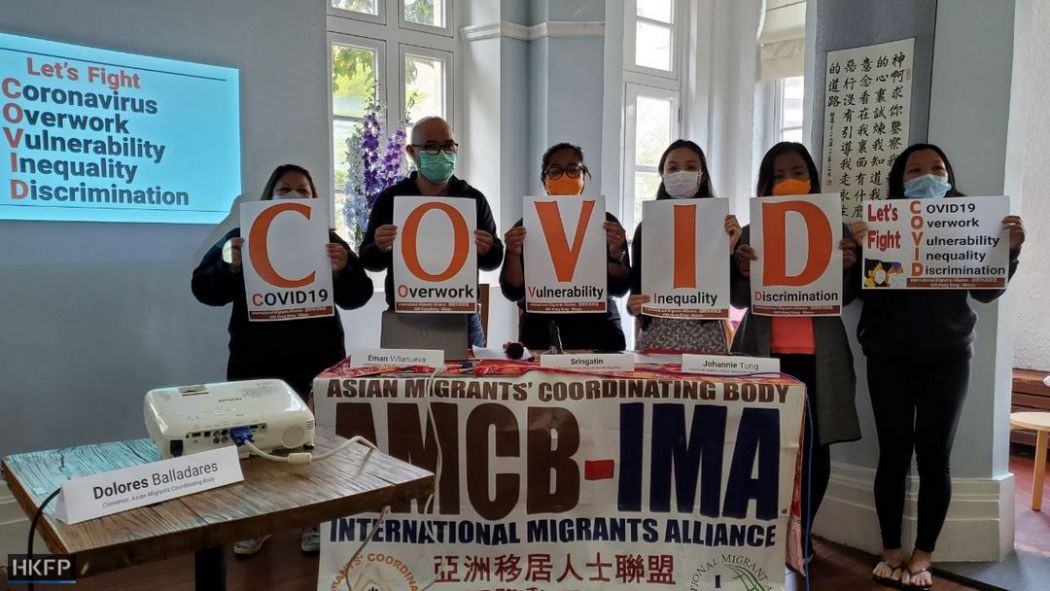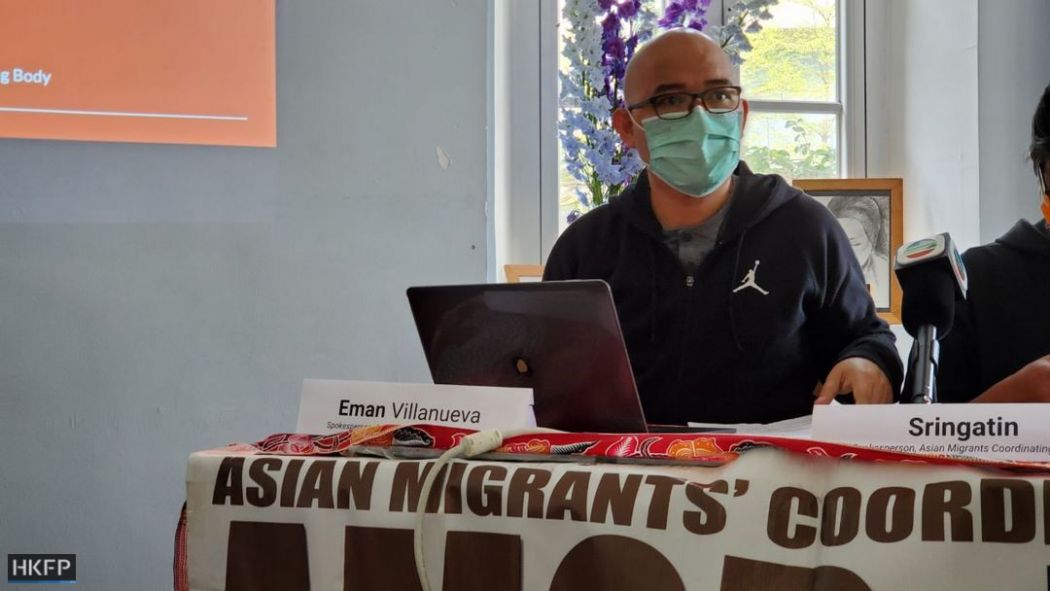Forty per cent of migrant domestic workers in Hong Kong reported having their labour rights curtailed over the past month due to the coronavirus outbreak, according to an NGO survey.
Migrant worker association the Asian Migrants Coordinating Body (AMCB) and charity the Mission for Migrant Workers (MFMW) conducted an online survey from last Sunday to Tuesday among 1,127 respondents. Fifty-four per cent were Filipinos and 44 per cent were Indonesians. The study focused on their access to protective materials including masks, sanitisers and alcohol, as well as the impact of the pandemic on their working conditions.

The study found that 11 to 14 per cent of domestic workers had not received masks or sanitisers from their employers. More than half of them reported increased workload following the start of the outbreak.
MFMW Community Relations Officer Johannie Tong on Monday cited the Centre for Health Protection as saying that five domestic workers had tested positive for the virus after their employers’ were confirmed to have been infected.
First detected in China’s Hubei province, Covid-19 has now infected more than 173,000 people with 6,600 deaths across at least 158 countries and territories globally. There have been 142 confirmed cases in the Philippines and 134 in Indonesia, two countries where the majority of domestic workers in Hong Kong come from.

Some respondents said their employers had asked them to resign if they took days off outside of the household. Meanwhile, one person said that she had not had a rest day for nine consecutive weeks.
In January, a spokesperson for the Labour Department urged workers to avoid going outside on their rest days as a precautionary measure: “The government appeals to [foreign domestic workers] to stay home for rest on their rest day as far as possible, and to stay away from crowds on public transport or at public places,” they said.
‘Vulnerable’
Tong said one domestic worker had reported being forced to take 10 days of unpaid leave without living expenses due to having a fever. Another worker said she was forced to share a room with her male employer who had recently returned from mainland China and was meant to enter a 14-day home quarantine period.

“It is worrying and disappointing that the government is showing [its] discrimination and ignoring [the] welfare and rights of foreign domestic workers,” Tong said. “Domestic workers are made vulnerable in this crisis.”
During the outbreak, 21 workers reported encountering difficulties with government services such as being unable to file grievances due to limited services at the Labour Tribunal and Labour Department.
Under Hong Kong law, migrant domestic workers are required to live in the same residence as their employer and must leave the city within two weeks of their contract being terminated.

Spokesperson of Asian Migrants Coordinating Body Eman Villanueva said government measures have limited flexibility in adapting to the current outbreak.
Its visa extension policy only ensured that employers did not have to go days or weeks without their workers, he added: “It was never meant to assist migrant workers. It was meant to assist employers.”
Villanueva added that they wished to foster solidarity between different groups in society: “If we leave the domestic workers behind… unprotected, we are actually opening up the whole household to the danger of Covid-19 infection.”

The groups urged the government to include migrant domestic workers in its financial assistance schemes, such as an HK$10,000 proposed handout to permanent residents.
They also called for a curb on price gouging and to ensure adequate supplies of affordable protective materials for all, as well as the abolition of the two-week rule and mandatory live-in policy.
